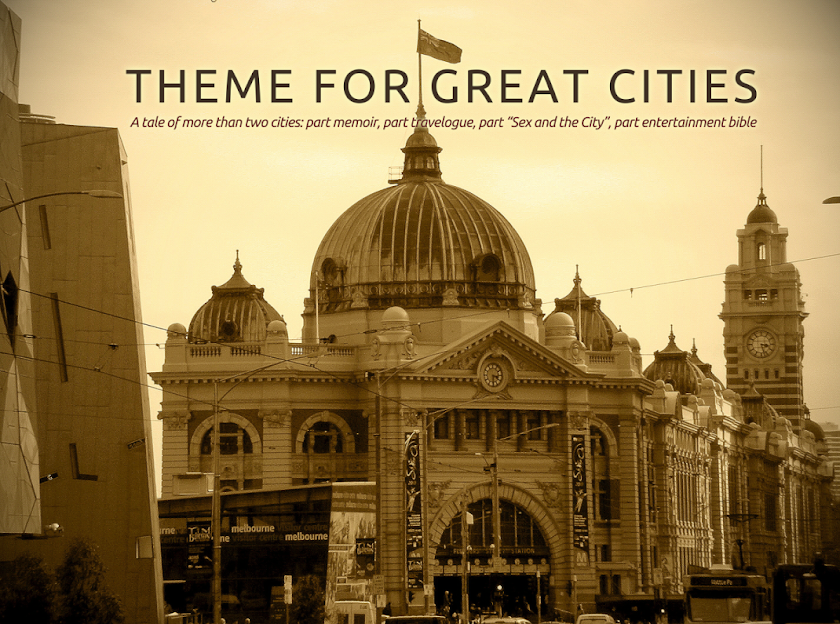2. Tom Hanks in peril (thanks to his courier work), surrounded by water. Where did I see this before? Ah, yes, Cast Away, the last film for which Hanks was nominated for the Best Actor
Oscar. The first notable difference between Captain Phillips and Cast Away was how quickly I was pulled into Richard Phillips's home life and how Hanks was able to lay out the character's character with very little exposition. (Oscar nomination No. 6 should be a done deal.) The opening scenes were so
full of subtext. The relationship between him and his wife (Catherine Keener, effortlessly making a huge impression with only a few minutes of screen time) was loving, yet it wasn't sugarcoated: There was a hint of tension, perhaps due to the demands of
his job as a merchant mariner, or their son Danny not taking school seriously (he dominated the discussion during the ride to the airport, but it almost felt like Phillips was talking about something else), or maybe it was just Phillips's slightly prickly personality.
At two points during the film, we saw Phillips soften while writing to his wife, and by the second note, it was clear how much she meant to him. It's been years since I last saw Cast Away, but I don't recall being
so drawn into Hanks's character's life on dry land, or wondering what Helen Hunt was up to during the time that he was lost at sea. I wanted him to survive,
not necessarily get home to his loved one, and had she not been married to Mr. Big upon his return, I probably wouldn't even remember Helen Hunt in the movie at all. But while watching Phillips' plight, I kept thinking about the barely seen wife he left behind in Underhill, Vermont, hoping that he'd make
it home to her alive.
3. It's not like me to root for the bad guys, and I didn't do it during Captain Phillips. But in a year with two Oscar contenders in which black vs. white
(Lee Daniels' The Butler and 12 Years a Slave), with the black side of the equation in the position of submission, it was strangely refreshing to see four lone
Somalians in the position of power on a massive American ship with a nearly all-white crew. I wonder if I would have felt the same way had I not been bombarded with so many slavery- and Civil Rights-themed movies in the last few years, or if I hadn't seen Phillips
from the vantage point of being on South African soil.
4. Why would the U.S. government send a cargo ship into dangerous pirates-ridden waters without any kind of security other than water hoses built onto the
ships? If the right to bear arms should apply anywhere, wouldn't it be while sailing through the Horn of Africa in an area known to be frequented by
marine hijackers? I mean, where was the MV Maersk Alabama's security team?!
5. The movie certainly didn't go where I thought it would. I was expecting a two-hour movie version of the Australian series Sea Patrol, starring Tom
Hanks, which would have been fine with me. (I love watching that show when I'm in Bangkok.) But what I ended up getting, Captain vs. "Captain," was far more
captivating. The chemistry between Hanks and Barkhad Abdi (who gave Muse a dangerous, almost sexy, swagger; at times he was borderline likable) made it
easy to see the grudging mutual respect and admiration between the two adversaries. "You're not just a fisherman; [softer] you're not just a fisherman" is still playing over and over in my head.
6. Was Captain Phillips a hero or wasn't he? I suspect that will be one of the big debates of this Oscar season since the movie was based on a true story.
Though he had his heroic moments, the film certainly didn't present him as being a hero in the Harrison Ford sense. I saw the story's outcome as being
clearly a team effort, but I give full credit to Hanks for showing us Phillips' bravery while making his fear so incredibly palpable and moving.
7. Pirates are people, too. No, I'm not condoning what the four primary villains of Captain Phillips were up to, but I appreciate how the movie gave them
humanity without beating us over the head with it. If they had been heartless, soulless killing machines, there would have been a lot more carnage throughout the course of their piracy. They were deprived people who felt shortchanged by life, like they had no other options. Sadly, they
also exhibited another unfortunate human characteristic: greed. Whether they were acting on behalf of their own avarice or that of the elders, $30,000 of
free money should have been enough to send them on their way. Only, I don't believe that in the end it was all about the money. It had become a game to the
pirates, particularly Muse, and all that mattered was winning. How human, all too human is that?


No comments:
Post a Comment